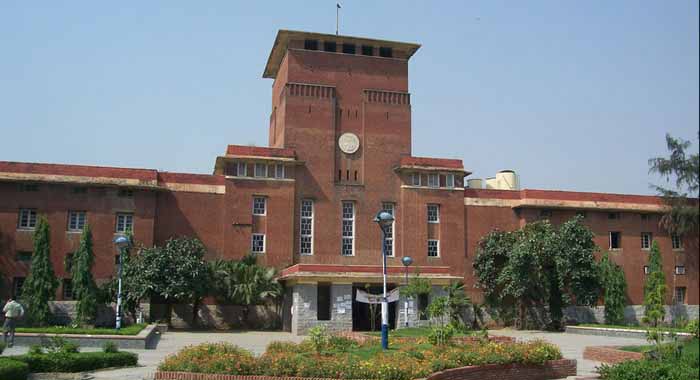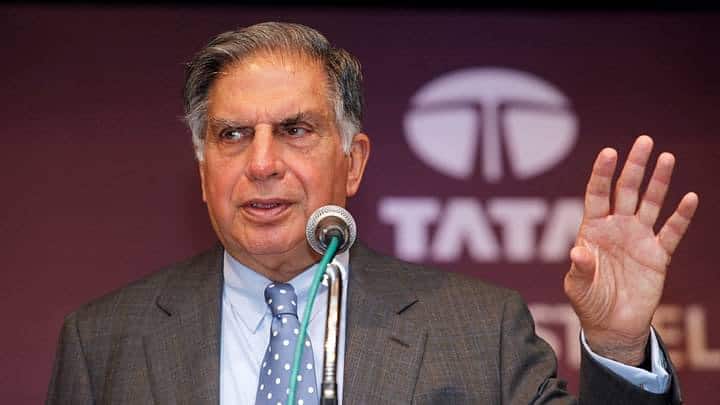Members allegedly of ABVP disrupt protest in Ramjas College on 8th January against Prof. Dhani Ram’s sexual harassment allegations. The protestors demanded that the college administration suspend the professor officially and reconstitute the ICC. The miscreants severely injured a student from the North East and threatened violence against a professor of English who intervened. Cases of sexual harassment, marking the above, continue to rise, alongside politically charged violence within academic spaces.
Dhani Ram’s history of sexual harassment charges
In December 2024, a minor and a first year undergraduate student of Ramjas College filed a case against Dhani Ram, professor of the commerce department and joint dean of Dean of Students’ Welfare, DU at the Internal Complaints Committee of the college over charges of molestation and sexual harassment. This complaint was the fourth official complaint against the commerce professor filed at the ICC of the college with several other unofficial accusations of harassment that could not be filed officially, including a 2021 letter by M. Com Students of batch 2022 written to the then Secretary of the University Grants Commission (UGC) highlighting his ‘unethical and unprofessional teaching methodology’. The negligence displayed towards the previous complaints highlight the inaction of the college authorities and the ICC regarding his conduct and his abuse of power on multiple occasions. It was only after calls of protest by the student body, AISA and SFI that Prof. Dhani Ram was temporarily suspended from the college on 24th December 2024 pending the ICC enquiry, though an official notice of his suspension has not yet been released by the college.
ABVP’s violence and disruption of the 8th January protests
Due to the inaction of the college authorities for a duration exceeding 10 days since the filing of the complaint, Stanzin, the Vice-President of the Ramjas College Student Union, issued a call for protest on 8th January 2025. The protest demanded that the victim’s consent be taken into consideration, the reconstitution of the ICC, timely enquiry into and suspension of the accused professor, and transparency during the enquiry, including the publication of an official suspension order on the college website. However, when the students along with the members of SFI and AISA gathered in the Eco Lawns at 12:30 to make posters for the protest against sexual harassment, several students of the college and outsiders, alleged to be members of ABVP by the Left parties and the students, disrupted the protest and tore the posters. They harassed and attacked the student protestors with flower pots and sticks, particularly targeting a third year student from the North East, leading the student to suffer severe bleeding and injuries. Further, when a professor from the English department intervened to put a stop to the violence and request the group to stick to the cause rather than fight among themselves, he too was threatened by the outsider students with violence and later falsely accused of perpetrating violence himself. Despite the disruption of the protest, the student body, along with the Left parties, demanded action against the violence from the administration and issued a call for a protest against sexual harassment and the violence meted out by who they claimed to be ABVP members, outside the college in the evening.
ABVP’s protest, Prof. Dhani Ram’s supposed resignation and the Left vs Right debate
Meanwhile, the members of ABVP locked the Dean of Students’ Welfare office and conducted a sit-in protest in the office demanding Professor Dhani Ram’s resignation. A notice released by Mitravinda Karanwal, the secretary of DUSU, and signed by Bhanu Pratap Singh, the Vice President of DUSU, claimed:
By the orders of the students of Delhi University and ABVP led DUSU, Dhaniram shall not be allowed to enter his office and continue as the Joint Dean of Students’ Welfare, DU, till the enquiry against him is concluded and decision made.
Later, a screenshot of a mail supposedly written by Prof. Dhani Ram was circulated over social media by ABVP Delhi which claimed that Prof. Dhani Ram resigned due to its “persistent efforts”. However, no official confirmation about the accused professor’s resignation as the Joint Dean of DSW has been received. Further, Dhani Ram’s suspension from the post of Joint Dean does not indicate his suspension or termination as a professor in Ramjas College. His suspension and termination as a professor also do not guarantee the prevention of such cases in the future, leading to the necessity of addressing the larger problem of sexual harassment in universities with particular focus on the POCSO Act.
Stanzin, the Vice President of Ramjas College, resolved to continue the movement despite the alleged violence by ABVP:
We wish to ask why the ABVP is protecting sexual harassers and perpetrators. We further ask why the administration is complicit in the organised violence against common students. What occurred in Ramjas during the protest was wholly unconstitutional and barbaric. We condemn it to the fullest terms and demand justice for both the survivor as well as the students. Further, I want to emphasise that they will not silence us and we will continue to fight resiliently. While the ABVP is publicising that Dhani Ram has resigned from the post of Joint Dean of Students’ Welfare, no formal action has been taken against him. The administration is complicit in protecting him and we demand his immediate suspension and the reconstitution of the ICC. Since our demands have not been fulfilled, our fight continues.
A former student of the college and member of AISA added:
The attack by the goons today—it is amply clear that the people who inflicted the violence today were from ABVP—is the clearest expression of the state of democracy on our campus, in which, students cannot even gather to protest against sexual harassment on their own campus. There is a litany of regulations which is supposed to prevent sexual harrassment on campus, because sexual harassment is so fundamentally antithetical to a healthy teaching-learning environment, but all of these regulations are merely on paper. It is the students’ right to demonstrate and gather in their own college, and whenever the administration is incapable of directly suppressing these movements, it has time and again made use of goons to intimidate student organising, an example of which we also saw last year in the protests in BHU. ABVP and people aligned with it, in attacking the students today have proved that they stand with the perpetrators, the harassers, and all their claims of gender justice is a farce. The students of Ramjas College have bravely resisted all attempts at suppression, have done so today, and will continue to do so.
Rising cases of Harassment by professors and acts of violence in Ramjas; problems within the ICC
The sexual harassment case against Prof. Dhani Ram is not an isolated case in the college or the university as several students have also reported other cases of sexual harassment by professors in Ramjas College in the past few years that have either not been reported due to the influential positions of the accused or not been thoroughly investigated by the ICC. Further, the students of the college have also reported a rise in acts of physical violence during conferences, society events and auditions, and the everyday functioning of the college by students of the college, outsiders, and members of ABVP. The recent attack on student protestors by the members allegedly of the ABVP is a continuation of the acts of violence meted out to students and faculty in 2017 and 2019, and it raises grave concerns about the safety and security of students within the campus space. The college authorities must address the growing cases of sexual harassment by professors, the rise in the cases of violence, and reform and reconstitute the ICC, a body that has been reduced to inaction, complicity, shaming the victims and protecting the culprits, in accordance with the students’ demands for transparency and respect for the survivor’s consent.
A third year student of the college who had joined the protest remarks:
The recent act of violence during the protest by ABVP members is a shameful and concerning attempt to distract attention from the sexual harassment case. I found that several members of the staff association except for one did not even do the bare minimum. Important as it is for us to condemn violence, we must also ensure that we do not reduce this case to a left vs right battle and bring our focus back to the harassment case. This is sadly not the only case we have seen in the college as professors from the English and history departments regularly harass students sexually and verbally. We have even heard some of them slutshame their own colleagues behind their backs and we see them regularly harass female professors in the department meetings. These cases highlight a growing sense of institutional amnesia in the college and university where a large majority of students and professors no longer address such cases, thereby normalising them. It is important that the survivor in this particular case gets justice, Prof. Dhani Ram is suspended, and the larger problem of sexual harassment within university spaces is addressed, bringing into light other such cases as well.
Aadrit, a former student of the college who had also joined the protest added:
I went there as a common student, not as a part of any political party. I am a part of none anyway. I went there because it was important—not because a North East student was brutally beaten—that happened later and violence of all forms must be condemned—but because, first and foremost, it was a case of sexual harassment and my experience has been one where such cases routinely are brushed under the carpet; be it Hathras, RG Kar, or the previous offenses of Dhani Ram. Against the backdrop of the present situation, as the right and the left continue their war, I urge all students, faculty and others, to come together and stand in one unwavering spirit so that justice is done, ICCs are fixed, the system is corrected, and Dhani Ram and all those like him are held accountable. The focus must not shift. We must remember what we are up against: patriarchy. And we must all stand in solidarity in this arduous struggle for gender liberation which involves the fight against all forms of injustice.
Neha, the Secretary of SFI Ramjas, highlighted a systemic problem with the ICC of the college:
There have been multiple violations of ICC guidelines. The complaint has not got any reply from the admin even after 20 days when they should have released one within 7 days. Those who are a part of this enquiry committee consist of the same people who had protected Dhani Ram 2 years back in another sexual harassment case. While UGC guidelines say that people in enquiry committees should have work on gender, these teachers don’t have that merit either.
Further, a member of the college’s student union claimed in yesterday’s protest that a member of the college’s current ICC, which is investigating the Dhani Ram case, has had an alleged case registered against himself in the ICC, a body he is now a significant part of, on which account no action has been taken by the college authorities, highlighting the supposedly corrupt and complicit nature of the body.
Anonymous
Read Also: Dalit student allegedly harassed and assaulted by Shaheed Bhagat Singh College’s principal
Picture Credits: SFI Delhi Instagram Page










